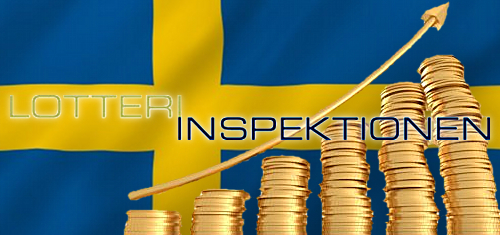 Sweden’s regulated online gambling market grew faster than international Swedish-facing operators last year, according to the country’s gambling regulator.
Sweden’s regulated online gambling market grew faster than international Swedish-facing operators last year, according to the country’s gambling regulator.
Preliminary stats for 2015 released by Sweden’s Lotteriinspektionen gaming overseer said the regulated market boasted turnover of SEK 45.6b ($5.3b), up 1.5% from 2014’s total. Total gaming revenue was also up 1.5% to SEK 16.7b.
Total online gambling revenue last year came to around SEK 8b, up around 7% from 2014. Lotteriinspektionen estimates that international operators serving the market without a Swedish license – mainly because Sweden doesn’t currently issue licenses to bloody foreigners – claimed around SEK 4.4b of this sum.
The international operators’ share eclipsed the SEK 3.6b collected by the state-owned betting monopoly Svenska Spel, but the monopoly’s share was up 8% year-on-year while the international sites grew only 6%.
Gambling advertising expenditure came to around SEK 3.3b, with roughly 70% of this being spent by those pesky international operators, despite the government’s vocal protestations. The total advertising spend is actually down from 2014, which the regulator attributes to last year’s lack of a marquee football competition.
On average, Swedish households spent around 2.4% of their disposable income on regulated gambling products last year, a sum equal to about SEK5,822 ($685) per person. The average Swedish adult lost around SEK 2,133 to the regulated market, while the average loss to international online gambling operators was a mere SEK 447 per adult.
Sweden is in the process of revising its online gambling market, prompted by years of public scolding and threats of legal action by European Commission watchdogs. New draft legislation is expected early next year, followed by a period of stakeholder comment and a final draft presented to legislators for consideration by the end of 2017.
The new regime is expected to call for the privatization of Svenska Spel, the issuing of licenses to international operators and more aggressive steps to prevent online operators not holding a Swedish license from accessing the market. Last month, a leading Swedish internet service provider went public with government plans to compel ISPs to block Swedes from accessing unauthorized sites.
